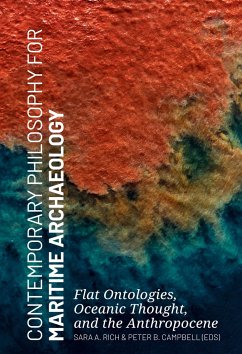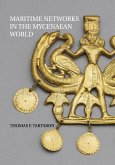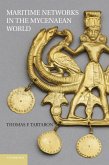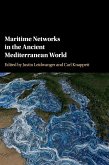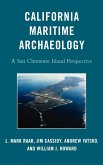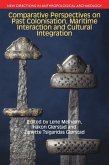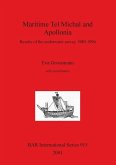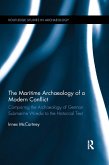While terrestrial archaeology has engaged with contemporary philosophy, maritime archaeology has remained in comparative disciplinary - or subdisciplinary - isolation. However, the issues that humans face in the Anthropocene - from global warming to global pandemics - call for transdisciplinary cooperation, and for thinking together beyond the confines of the human-centered philosophical tradition. Growing areas such as the "blue humanities" and "oceanic thinking" draw directly on our maritime past, even as they ponder the future. Theoretically engaged maritime archaeologists could contribute significantly to these areas of thought, as this volume demonstrates. The essays collected here serve as a jumping off point, which opens new ways for maritime archaeologists to engage with the most important problems of our time and to benefit from the new insights offered by object-oriented and flat ontologies. The book gathers the analytical thinking of archaeologists, philosophers, marine biologists, and media theorists, and pushes those observations deep into the maritime realm.The contributions then branch out, like tentacles or corals, reaching into the lessons of oil spills, cephalopod hideouts, shipwreck literature, ruined monuments, and beached plastics. The volume concludes with a series of critical responses to these papers, which pushes the dialogue into new areas of inquiry. Taken as a whole, the volume emphasizes that the study of the past is more relevant than ever because serious consideration of our transtemporal watery world and all its inhabitants is increasingly necessary for our collective survival. This volume takes the first steps toward this reckoning and, as such, it promises to be an important new contribution to lecture and conference halls around the world where oceans and the Anthropocene are under study.ContentsPrelude: A History of Maritime Archaeological ThoughtPeter B. CampbellCollapse, Cataclysm, and Eruption: Alien Archaeologies for the AnthropoceneSara A. Rich and Peter B. CampbellThe Shipwreck of Theseus: Philosophy and Maritime ArchaeologyGraham HarmanWhat Gets Washed Up on the Beach: Shipwreck, Literary Culture, and Objects of InterpretationSteve MentzWhere Land Flows into Sea: An Anthropocene SectionMatt EdgeworthMaritime Christening: Anthropomorphism and the Engender(bend)ing of MetaphorJeremy Killian and Sara A. RichComplicit Objects and New Materialist PraxisClaire S. WatsonAssemblage Theory and the Mediative Practice of Ship Hull ReuseChelsea M. Cohen"The Biggest Museum Gallery in the Whole World": Virtual Excavation and the Musealization of the SeafloorLisa Yin HanNaufragic Architecture in the AnthropoceneSara A. Rich, Leila Hamdan, and Justyna HampelOctopodology and Dark Amphorae: The Persistence and Non-Human Afterlives of Objects in the SeaPeter B. CampbellWater as a Hyperfact (reprint)Johan NormarkDrift (reprint)Þóra PétursdóttirContemporary Philosophies for Maritime Archaeology - A ResponseJoe FlatmanOOO, Archaeology, and the Anthropocene: Comments on Maritime Archaeology and Anthropocene PhilosophyChristopher WitmoreCompelled by Things: A Response to Contemporary Philosophy for Maritime ArchaeologyMatthew HarpsterTheory at Sea: Some Reflections from the GunwaleBjørnar J. OlsenConclusion: If on a Winter Night a Ship WrecksPeter B. Campbell
Hinweis: Dieser Artikel kann nur an eine deutsche Lieferadresse ausgeliefert werden.
Hinweis: Dieser Artikel kann nur an eine deutsche Lieferadresse ausgeliefert werden.

